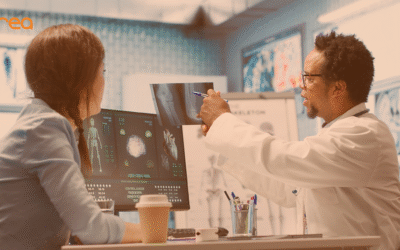In healthcare, data is not in short supply. Hospitals, pharma companies and public health systems generate it daily. But data by itself rarely changes outcomes.
The real value lies in extracting meaning, by turning raw data into clear, actionable healthcare insights that inform decisions, improve systems and ultimately enhance lives.
The Gap Between Data and Decisions
Most healthcare organizations today collect enormous volumes of information. However, they often face a familiar problem. Despite the volume, clear decision making doesn’t always follow. There are several reasons for this disconnect.
First, much of the data collected is fragmented. Systems don’t always talk to each other. Clinical records may be stored separately from patient feedback or claims data. This leads to an incomplete view of the patient journey.
Second, the data itself often lacks interpretation. Numbers without context can mislead or be ignored altogether. For example, knowing that appointment no-shows are high doesn’t help unless the ‘why’ is understood.
Third, traditional reporting structures tend to be outdated. By the time insights are compiled, the window to act may have passed. This slows response time, especially in fast changing healthcare environments.
Healthcare research aims to solve these problems. Its role is not just to gather data but to connect it, to identify patterns, ask the right questions and guide the next steps with clarity.
What Makes Insights Actionable?
Actionable healthcare insights are specific, grounded in context and tied to a decision. They translate information into direction.
In a real world example, instead of simply noting that medication compliance is low in a region, an actionable insight would identify that side effect fears and lack of pharmacist access are the top barriers.
These insights don’t emerge from raw data alone. They are the result of thoughtful healthcare research that combines structured surveys, qualitative interviews, observational data and, in some cases, secondary research to form a more complete picture.
Research That Supports Decisions
In high stakes environments like healthcare, decision making depends on timeliness, relevance and evidence.
Healthcare research allows this by ensuring insights are aligned with business goals, regulatory needs and patient outcomes.
Here are a few ways it supports decision making:
- Testing new ideas before launch, such as assessing market readiness for a new therapy
- Understanding differences in behavior across regions or specialties
- Tracking the impact of awareness campaigns or service changes
- Evaluating the experience of patients, caregivers or providers in a systematic way
The shift from data collection to insight generation also means that research teams must think beyond reporting. They must translate findings into priorities and ensure those priorities reach the right people on time.
From Insight to Execution
Acting on insights requires more than just knowing what’s wrong. It involves identifying the right next step, assigning ownership and integrating changes into operations.
When research is successful, it leads to measurable change, such as reducing drop offs in treatment or increasing follow up visit compliance.
Many healthcare organizations are now looping in insight teams into core functions like community outreach and marketing. This reflects a growing understanding that decisions should be informed by ongoing research, not occasional reviews.
The most effective insight driven organizations do three things consistently:
- Align research goals with operation goals
- Share insights across teams, not just leadership
- Monitor changes continuously and adapt based on outcomes
From Static to Strategy
What decision makers want today isn’t more data, but better direction. The expectation is shifting from passive reports to active roadmaps. Healthcare leaders often ask: What should we do next? What should we stop doing? Where should we invest?
To answer these questions, Healthcare research must simplify its delivery with clear visuals and context. That’s why there’s more use of dashboards, infographics and scenario modeling.
Krea’s Approach to Healthcare Research
At Krea, our strength lies in precision and context. Every research query is approached with clarity, ensuring that the data collected is not only accurate but also relevant to the audience it serves.
By focusing on the right data, delivered at the right place and time, we ensure that insights are always actionable and not generic.
Whether it’s identifying gaps in patient care, testing new medical concepts or evaluating stakeholder perceptions, Krea builds each project around the specific needs of the client.
The result is focused, context rich insights that support confident decision making in a complex healthcare environment.
Conclusion
Transforming healthcare data into decisions isn’t about having more information, it’s about better insight.
With thoughtful research design, timely interpretation and alignment with decision making, healthcare research becomes more than a reporting tool. It becomes a driver of progress.





